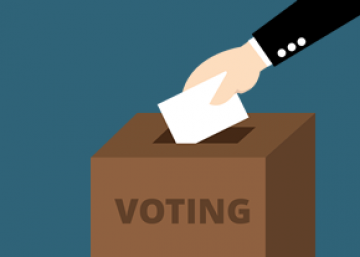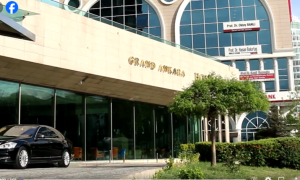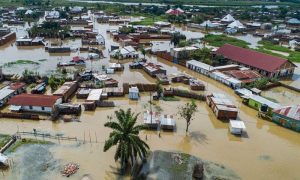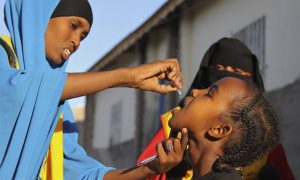
Somalia is currently recovering from over 3 decades of instability. The Federal government of Somalia currently sits in Mogadishu at Villa Somalia that is guarded by the Somalia National Army and AMISOM troops.
The National Independent Electoral Commission (NIEC), the official independent electoral body in Somalia which has its headquarters in Mogadishu and led by Chairperson Ms. Halima Ismael, is currently gearing up for the Juballand elections and the national election scheduled for 2020. There has been a rise of assassinations of NIEC officials and delegates nominating MPs and Senators across Somalia by Alshabab. According to the local media, some of the delegates fled the country to seek asylum in neighboring countries. The commission has also been conducting by-elections for positions that have been vacated by legislators due to various reasons.
The commission did an exceptional job in conducting the 2017 national elections, that got the current president and his administration elected, but could not manage to stop mass corruption encompassing the selection of delegates to the presidential elections. While the commission struggles with a myriad of challenges including lack of funding, limited capacity and lack of support from all relevant stakeholders, they are still mandated to deliver free and fair elections across Somalia.
The 2020 election will be different from the last one because of the changing political scene. There is mass registration of political parties and currently, there are 35 that are officially registered by the electoral commission.
This election belongs to all of us (Somalis). Everyone here holds a stake in turning our vision for universal (adult) suffrage in 2020 into a reality,” Ms. Halima told participants at a 4-day workshop organised by African Union Commission in Addis Ababa
The most disturbing part of the current (s)election system is that the candidates can bribe their way into the Somalia federal parliament by paying hefty amounts to get (s)elected. How do you expect someone who paid close to $500k to secure a parliamentary seat to put the interest of the public first before his interest let alone the interests of his clan and supporters who bankrolled him to get the seat? It is simply a pure business transaction and the winner takes it all. That leaves the Somalia citizens with no option but just to vent their concerns on social media.
Challenges in conducting the 2020 elections
1- The commission doesn’t have the capacity, countrywide presence, and proper experience to conduct one-person-one-vote in 2020 in Somalia.
2- The timeline is too short to prepare for a countrywide election based on one-person-one-vote. The commission has less than 2 years to prepare.
3- Somali citizens do not have the proper identification and electoral cards to take part in the exercise
4- The Somalia Federal Government doesn’t control much of Somalia and hence NIEC cannot conduct the exercise without interferences by local administrations or violence by Alshabaab.
5- The current 4.5 system of sharing of power and resources is unjust and marred with corruption from the start to finish and only empowers the powerful and elite people in each clan.
Recommendations
1- Improve the current system of (s)election of MPs and Senators by increasing the delegates nominating the leaders from a mere 14,000 to 100,000 or more depending on available resources and timelines. This will create a more inclusive process in which the 275 members of the lower house of Parliament would be selected by clan caucuses of more than 51 delegates per caucus as opposed to the 2017 elections.
2- Creating inclusive participation in the selection process by bringing the biggest stakeholders in the country, the Somali youth, and women who constitute about 75% of the Somali population. This can create trust and increase the acceptance of the next administration. This will also contribute to enhanced women’s political participation and achievement of 30% political quota, which averages 24% as at the 2016 elections.
3- Civic education and capacity building for the delegates participating in the selection process and introducing more ways that can allow direct interaction between the potential candidates and the delegates are selecting them. Town hall meetings across Somalia will allow the constituents to listen to the candidates, ask questions and interact with their potential leaders.
4- Introducing and adopting new measures in curbing election fraud and bribery. These include anti-corruption and bribery laws & policies, issuance of sanctions, disqualification, travel ban and arrests to anyone found involved in corruption during the election period.
5- The electoral commission should adopt the secret ballot box for the selection of the candidates by the delegates to reduce the chance of corruption and fear of intimidation.
.
.
This article is solely based on the opinions of the author
.
.
.
Source: Medium Corporation | by Awil Osman
.
Xafiiska Wararka Qaranimo Online | Muqdisho
____________________________________________________
_____________________________________________________________________________________Xafiiska Wararka Qaranimo Online | Mogadishu, Somalia
_____________________________________________________________________________________Advertisement
_____________________________________________________________________________________







